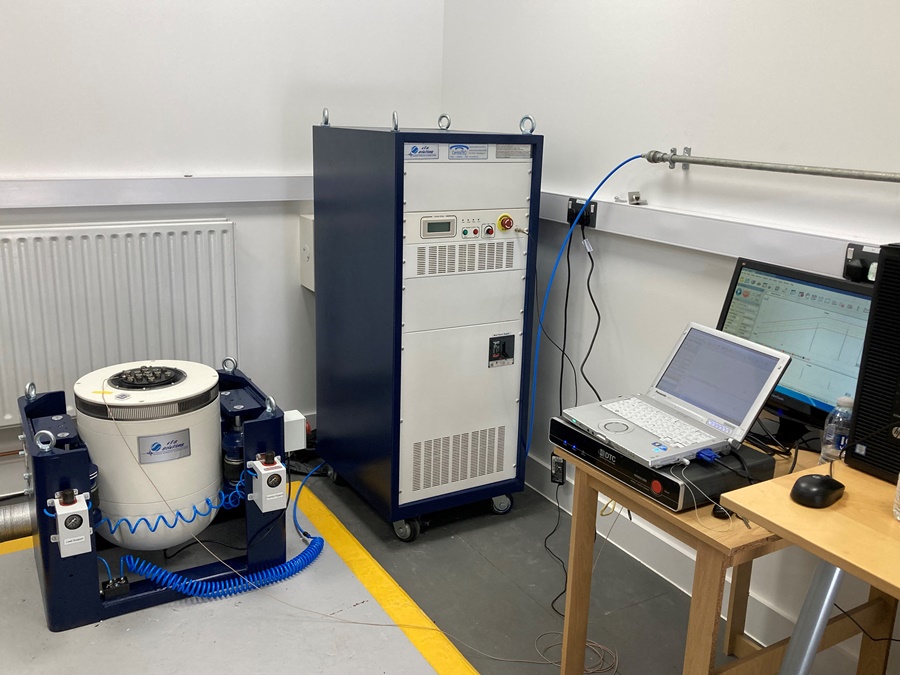Exeter University is making use of an ETS vibration tester to improve the energy efficiency of engineering systems
CentraTEQ has installed a vibration test system in the Engineering Department at the University of Exeter. The ETS Solutions MPA101/L215M shaker system and controller is capable of 200 Newtons force, with a 25.4mm peak -peak displacement.
The new ETS shaker system will be used for multiple purposes by a number of academic staff in the Department, but the primary use of the system will be for the vibration testing of impact or rotating systems to develop energy saving control technology for a broad range of engineering applications, such as percussive drilling for oil and gas exploitation, energy harvesting and rotating machinery.
According to Professor Yang Liu, Associate Professor in Dynamics and Control in charge of the new vibration test equipment, the UK has been one of the industrial powerhouses of Europe since the time of the Industrial Revolution. Today, it is a major challenge for power intensive industries to optimise their energy strategy to ensure long-term sustainable economic growth. Strategies to improve the energy efficiency of engineering systems are vital.
“My research intends to unravel a practical question: can we improve the energy efficiency of engineering systems through judiciously switching between their multi-stable states. My mission is to develop a novel control strategy for engineering systems in order to maintain their performance within a satisfactory level by implementing an energy-optimal steering.”
When asked about the decision to purchase the ETS system from CentraTEQ, Professor Liu explains, “We discussed our requirements with potential suppliers, who advised us on the options available. The ETS shaker proved to be the perfect size and capacity, suitable for the limited space in our laboratory – backed up by an affordable price tag. Moreover, the CentraTEQ engineers were able to deliver invaluable expertise and knowledge.”
Jim Flanagan, MD of CentraTEQ added “We are delighted to be working with the University of Exeter on this valued and important project to improve the efficiencies in engineering systems across a wide range of applications. The team at Exeter are an extremely knowledgeable group of Engineers and we look forward to working with them on this project and many others in the future.”
- UK manufacturing steps up to COVID-19 crisis - April 2, 2020
- Clustering Innovation - March 12, 2020
- A Global Monitor - March 6, 2020

